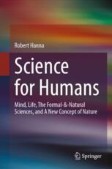Search
Search Results
-
Wang Longxi’s A Priori Rightness of Mind and Qian Dehong’s A Posteriori Sincerity of Intention
Wang Yangming 王阳明 changed the themes of his teaching many times during his life, and his disciples also absorbed different parts of his theories...
-
Does Representationalism Offer a Reply to the Knowledge Argument?
I agree with Torin Alter that physicalists should be a priori physicalists. I argue against his rejection of the representationalist response to the...
-
The Value Problem of A Priori Knowledge
In recent years, there has been a “value turn” in epistemology. We intuitively think of knowledge as having a value, a value that mere true belief...
-
A problem with the fixed past fixed
A novel fatalistic argument that combines elements of modal, temporal, and epistemic logic to prove that the fixed past is not compatible with the...

-
Husserl’s Universal Empiricism as a Moderate Rationalism
In the previous chapters, we have discussed the nature and role of experiential justification within a Husserlian framework, and we have clarified...
-
Quine’s critique of C. I. Lewis: pragmatism, psychologism, and naturalism—a response to Quine, conceptual pragmatism, and the analytic-synthetic distinction (Robert Sinclair, 2022)
I argue that Quine’s naturalization of Lewis’s Kantian pragmatism should be understood in terms of Lewis’s attempt to de-psychologize pragmatist...
-
God’s necessary existence: a thomistic perspective
There are strong reasons for assuming that Thomas Aquinas conceived of God’s existence in terms of logical necessity in a broad sense. Yet this seems...
-
Intelligence as a Social Concept: a Socio-Technological Interpretation of the Turing Test
Alan Turing’s 1950 imitation game has been widely understood as a means for testing if an entity is intelligent. Following a series of papers by...
-
Evolutionary anamnesis
In the Meno , Phaedo , and Phaedrus , Plato outlines the controversial thesis of a priori knowledge that all learning is a form of recollection— anamnesis ...
-
Epistemic Thought Experiments and Intuitions
This work investigates intuitions' nature, demonstrating how philosophers can best use them in epistemology. First, the author considers several...
-
Kant’s Common Good: A Potential Unity of Aesthetics and the Ethics for a Sustainable Culture
Undoubtedly, studies on Kant’s aesthetics have been explored and been published by numerous scholars; their contribution to humanities is...
-
Life, Concept and Purpose: The Organism as a Connection in Kant’s Critical Philosophy and Georges Canguilhem’s Historical Epistemology
The focus on the concept of organism, considered as a totality, is a common feature both in the work of Georges Canguilhem and Immanuel Kant. Given...
-
Reconstruction from Ultimate Scepticism
Kerr-Lawson discusses the reconstruction of knowledge Santayana undertakes in the second half of SAF. Kerr-Lawson explains Santayana’s general...
-
Attempting to Exit the Human Perspective: A Priori Experimentation in Kant’s Critique of Pure Reason
I consider a problem for Kant’s transcendental idealism if one construes it as a claim that human beings know from a particular, specifically human...
-
Physics for Humans: Kant, Physics, and the Neo-Aristotelian Natural Power Grid
In this chapter, I argue that there is a distinctively different, arguably true, and above all thoroughly anti-skeptical, contemporary Kantian third...
-
A critique of strong Anti-Archimedeanism: metaethics, conceptual jurisprudence, and legal disagreements
This paper is divided into two parts. In the first one I distinguish between weak and strong Anti-Archimedeanisms, the latter being the view that...
-
Activating, Seeking and Creating Common Ground: A Socio-Cognitive Approach
This paper argues that current pragmatic theories fail to describe common ground in its complexity because they usually retain a...
-
Hale’s Reactions to Kitcher’s Views
In this chapter I will be discussing only the views of Hale which constitute a direct response to Kitcher. In contrast with Kitcher, for Hale, a...
-
Coordination, Convention and the Constitution of Physical Objects
In this paper, I address the significance of the key notions of coordination, constitution and convention. My aim in so doing is to provide a better...
-
A new problem for internalism
I will argue that internalism about justification entails the apparently absurd conclusion that it is possible to know specific facts about the...
